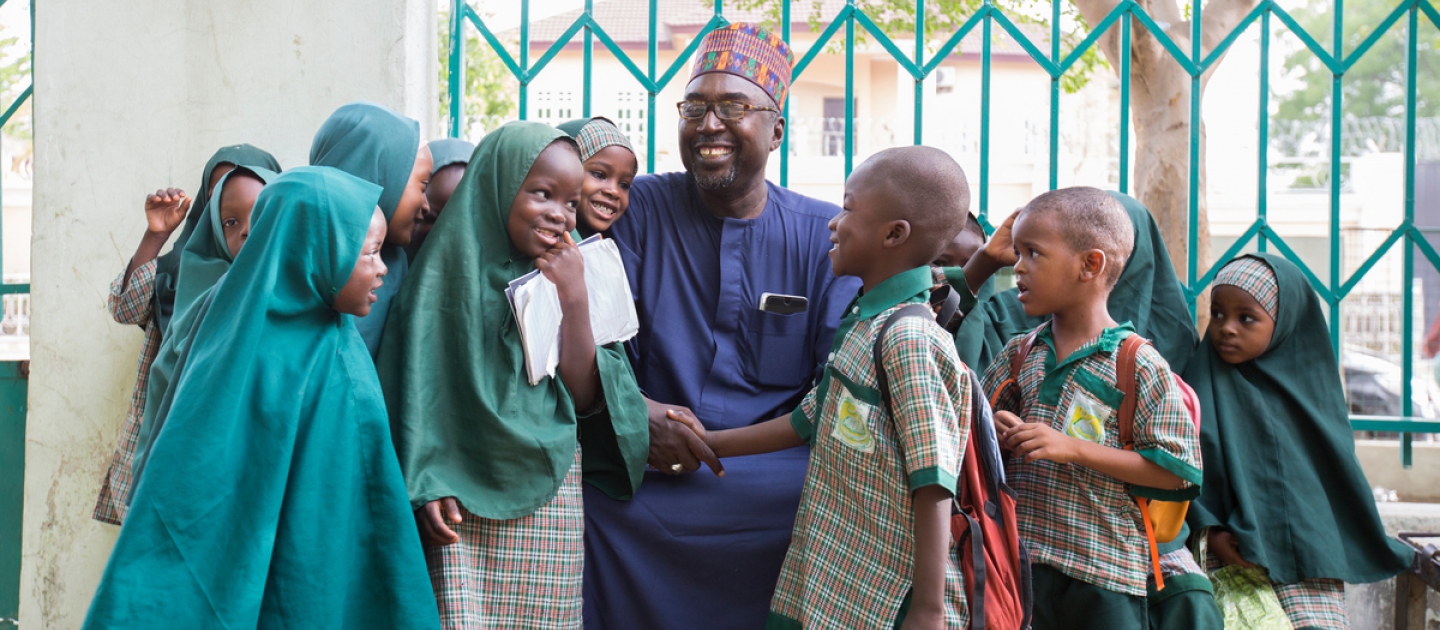Mediator who helped gain release of Chibok girls wins humanitarian honour for opening schools amid conflict in north-eastern Nigeria.
Zannah Mustapha, a champion for the rights of displaced children growing up amid violence in north-eastern Nigeria to get a quality education, is the 2017 winner of the UNHCR Nansen Refugee Award.
Mustapha founded a school in 2007 in Maiduguri – the capital of Borno State and the epicentre of the Boko Haram insurgency. The school has stayed open throughout the conflict with Boko Haram, which has seen some 20,000 killed across the Lake Chad region, and millions more displaced.
The school provides a free education, as well as free meals, uniforms and health care, to children affected by violence. Those orphaned by the conflict on both sides are welcomed into Mustapha’s classrooms as a sign of the reconciliation he hopes to achieve in the region.
“Education is one of the most powerful tools for helping refugee children overcome the horrors of violence and forced displacement.”
UN High Commissioner for Refugees Filippo Grandi.
Over a decade, the school has grown from 36 students to 540. Desperate for an education, thousands more children have added their names to its waiting list. In 2016, Mustapha opened a second school just a few kilometres away from the first. Eighty-eight children, all of whom have fled conflict in the region, walk through its classroom doors each day.
Mustapha’s work in the region also includes mediating between Boko Haram and the Nigerian government. His efforts have resulted in the release of more than 100 kidnapped Chibok school girls.
“This school promotes peace. It is a place where every child matters,” he added. “These children shall be empowered, empowered in such a way that they can stand on their own.”
Zannah Mustapha
More recently, Mustapha donated acres of his own land to 800 displaced families. Building a water irrigation pump and shelter, these families are now able to support themselves and sell their produce at local markets.
Photo gallery: Nansen refugee winner 2017
18 September 2017
-
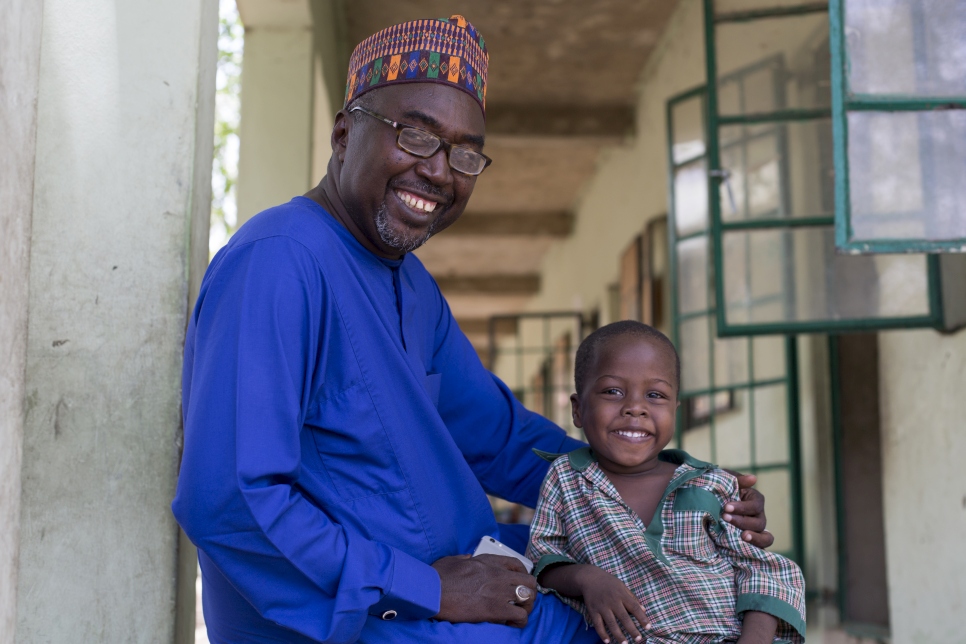 Mr Mustapha and his son who is enrolled in a nursery class at the school. Future Prowess Islamic Foundation School (I), Maiduguri, Borno State, Nigeria. © UNHCR/ Rahima Gambo
Mr Mustapha and his son who is enrolled in a nursery class at the school. Future Prowess Islamic Foundation School (I), Maiduguri, Borno State, Nigeria. © UNHCR/ Rahima Gambo -
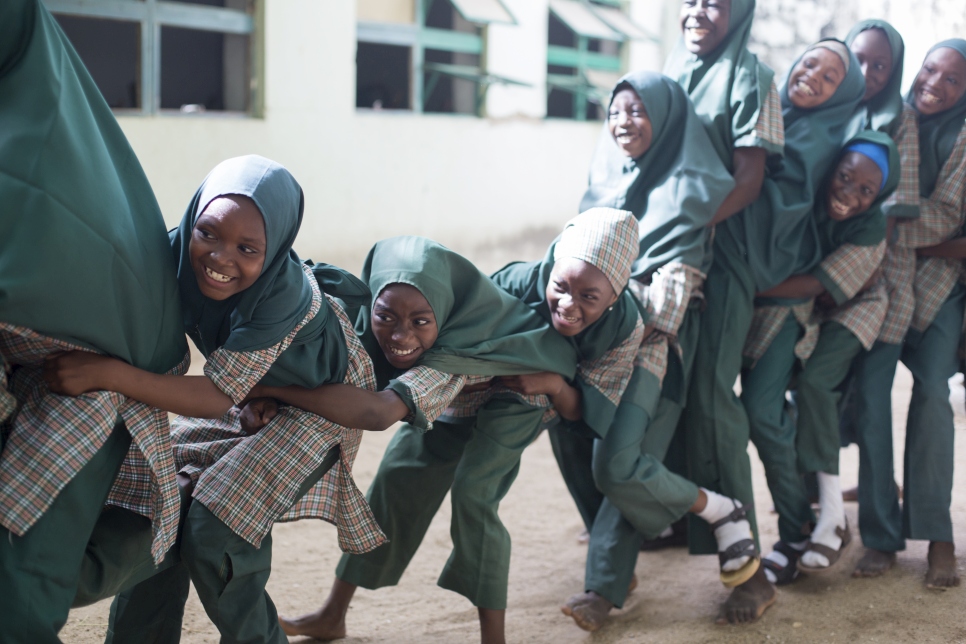 Students of Future Prowess Islamic Foundation School (I) during P.E., Maiduguri, Borno State, Nigeria. © UNHCR/ Rahima Gambo
Students of Future Prowess Islamic Foundation School (I) during P.E., Maiduguri, Borno State, Nigeria. © UNHCR/ Rahima Gambo -
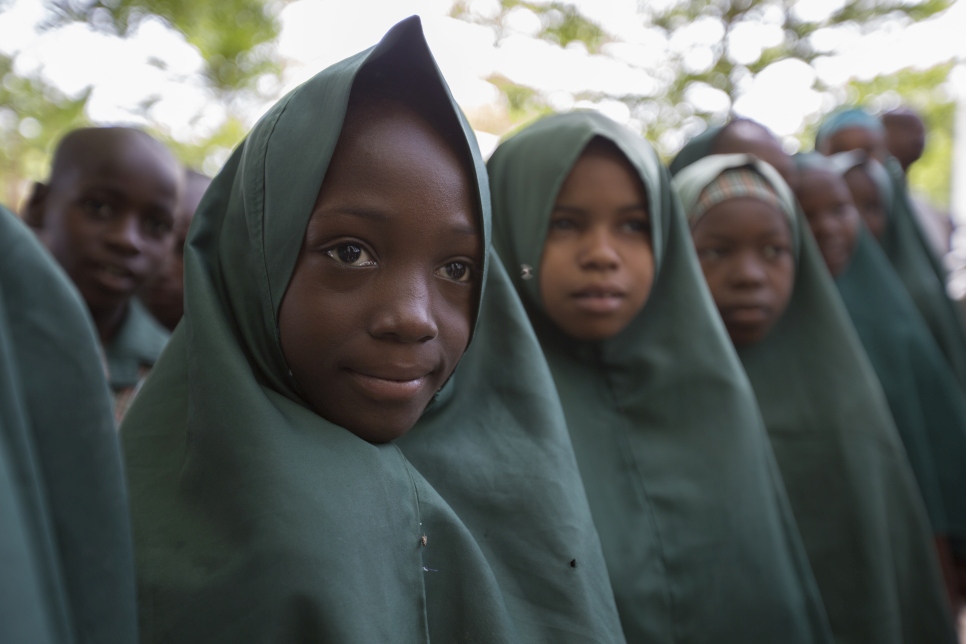 Students at Mustapha's school in Maiduguri, Borno State, Nigeria line up for morning assembly. © UNHCR/Rahima Gambo
Students at Mustapha's school in Maiduguri, Borno State, Nigeria line up for morning assembly. © UNHCR/Rahima Gambo -
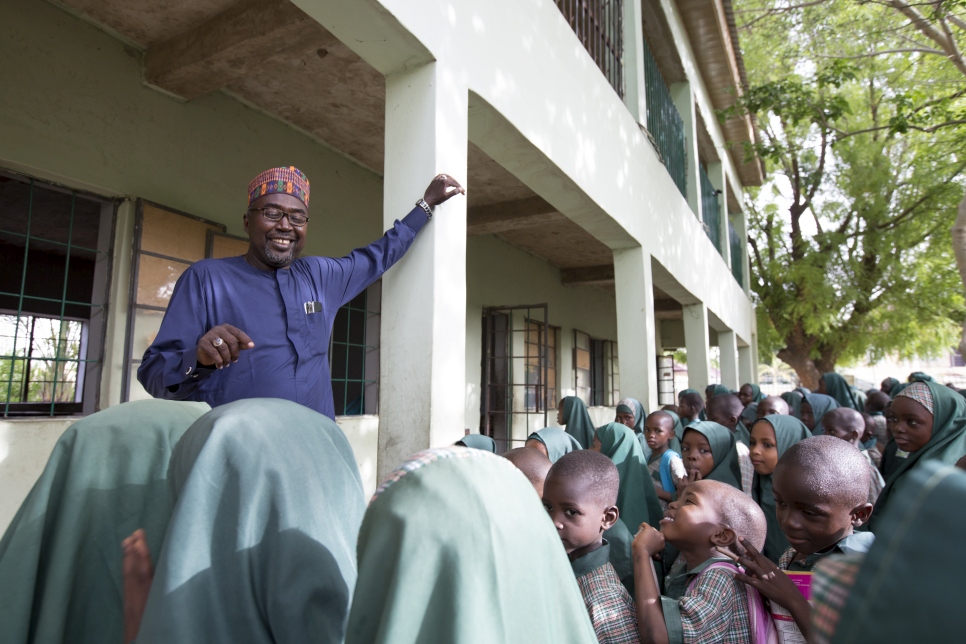 Mr Mustapha and the students of Future Prowess Islamic Foundation School at a morning assembly. Future Prowess Islamic Foundation School (I), Maiduguri, Borno State, Nigeria. © UNHCR/ Rahima Gambo
Mr Mustapha and the students of Future Prowess Islamic Foundation School at a morning assembly. Future Prowess Islamic Foundation School (I), Maiduguri, Borno State, Nigeria. © UNHCR/ Rahima Gambo -
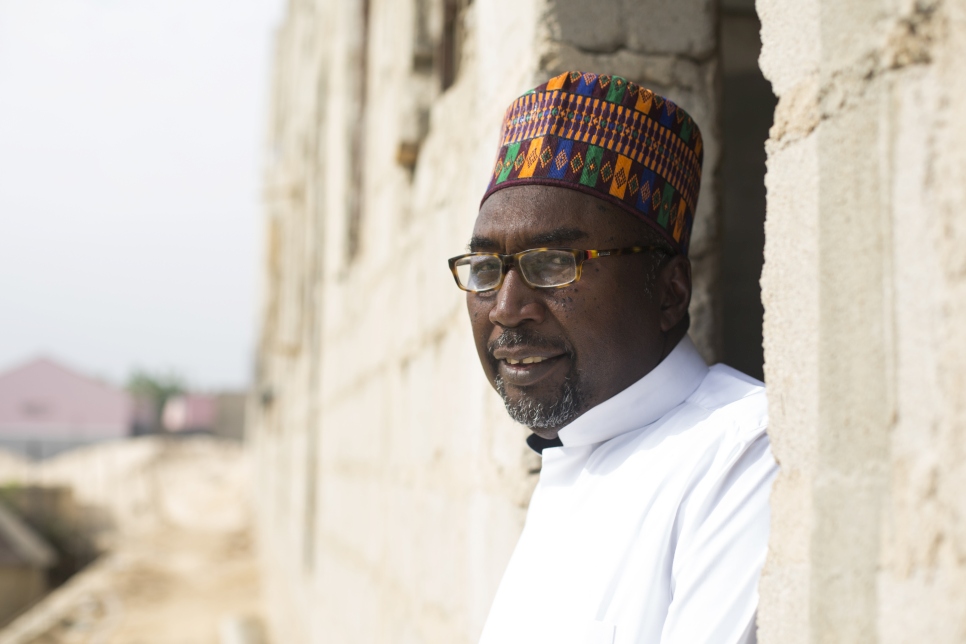 Mr Mustapha stands outside his third school, being built next to the Future Prowess Islamic Foundation School (II) on the banks of the River Gadabul. The school will enroll mature students who have missed out on their education due to the conflict. Hostels will allow girls and boys to stay overnight. © UNHCR/ Rahima Gambo
Mr Mustapha stands outside his third school, being built next to the Future Prowess Islamic Foundation School (II) on the banks of the River Gadabul. The school will enroll mature students who have missed out on their education due to the conflict. Hostels will allow girls and boys to stay overnight. © UNHCR/ Rahima Gambo -
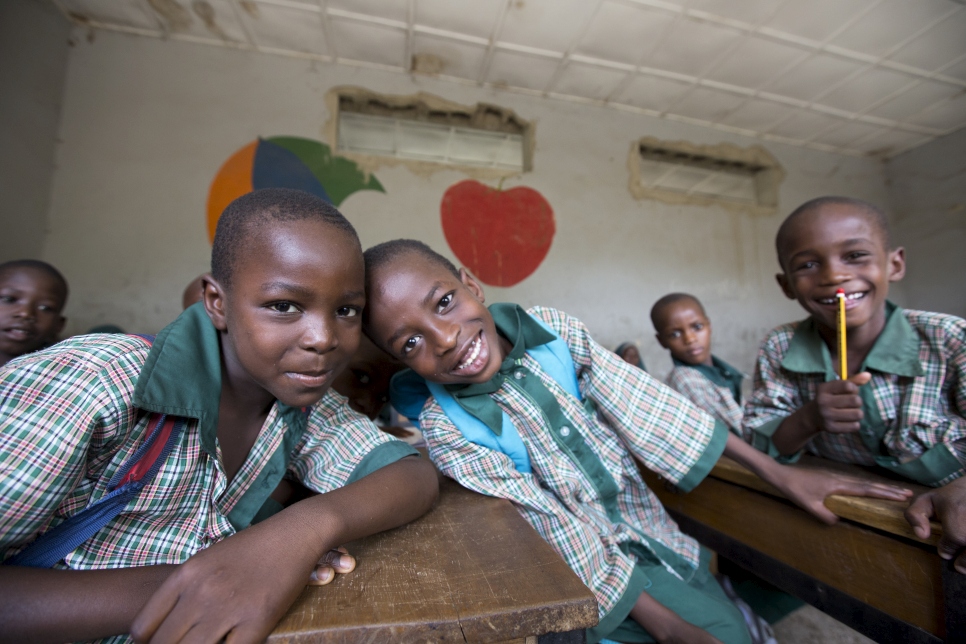 Ayuba Mustapha, 8, and his best friend Adam Alhaji, 8, and Abubakar Muhammed, 8, Future Prowess Islamic Foundation School (I), Maiduguri, Borno State, Nigeria. © UNHCR/ Rahima Gambo
Ayuba Mustapha, 8, and his best friend Adam Alhaji, 8, and Abubakar Muhammed, 8, Future Prowess Islamic Foundation School (I), Maiduguri, Borno State, Nigeria. © UNHCR/ Rahima Gambo -
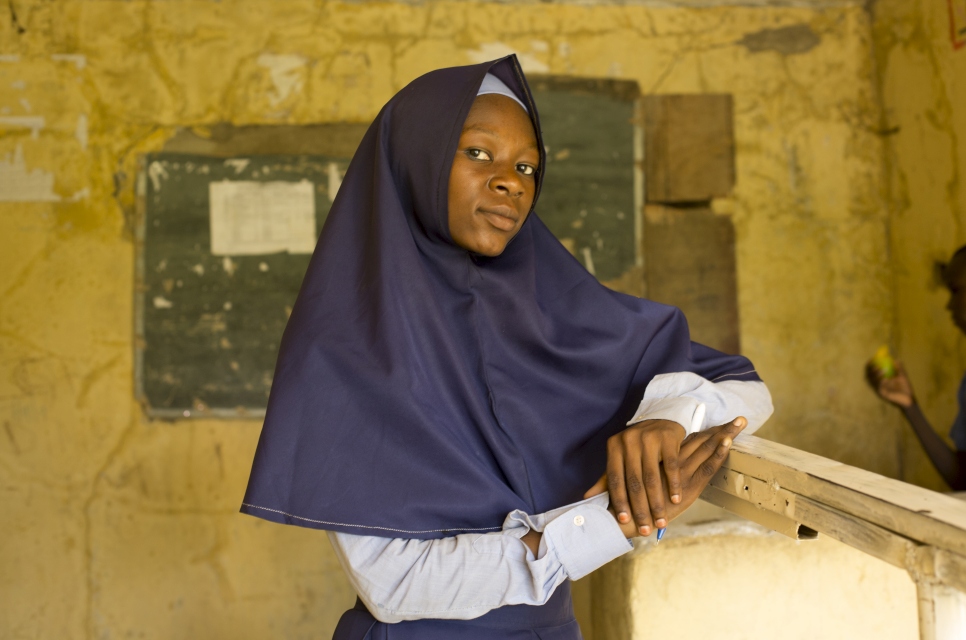 Fannah Mohammed Ali, 16, at Treasures Richfield College. Maiduguri, Borno State, Nigeria. © UNHCR/Rahima Gambo
Fannah Mohammed Ali, 16, at Treasures Richfield College. Maiduguri, Borno State, Nigeria. © UNHCR/Rahima Gambo -
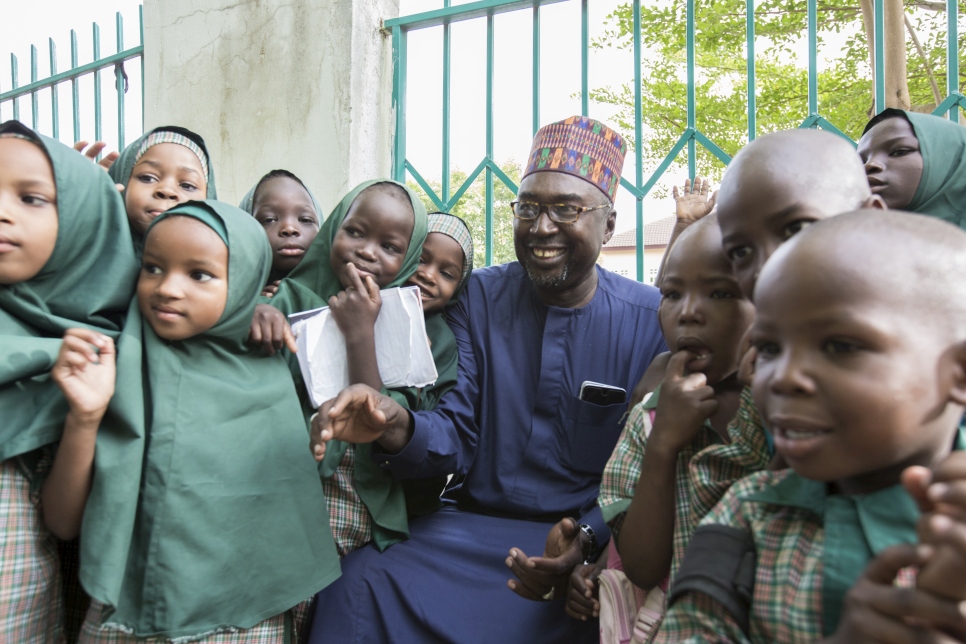 Mr Mustapha and the students of Future Prowess Islamic Foundation School before morning assembly, Future Prowess Islamic Foundation School (I), Maiduguri, Borno State, Nigeria. © UNHCR/Rahima Gambo
Mr Mustapha and the students of Future Prowess Islamic Foundation School before morning assembly, Future Prowess Islamic Foundation School (I), Maiduguri, Borno State, Nigeria. © UNHCR/Rahima Gambo -
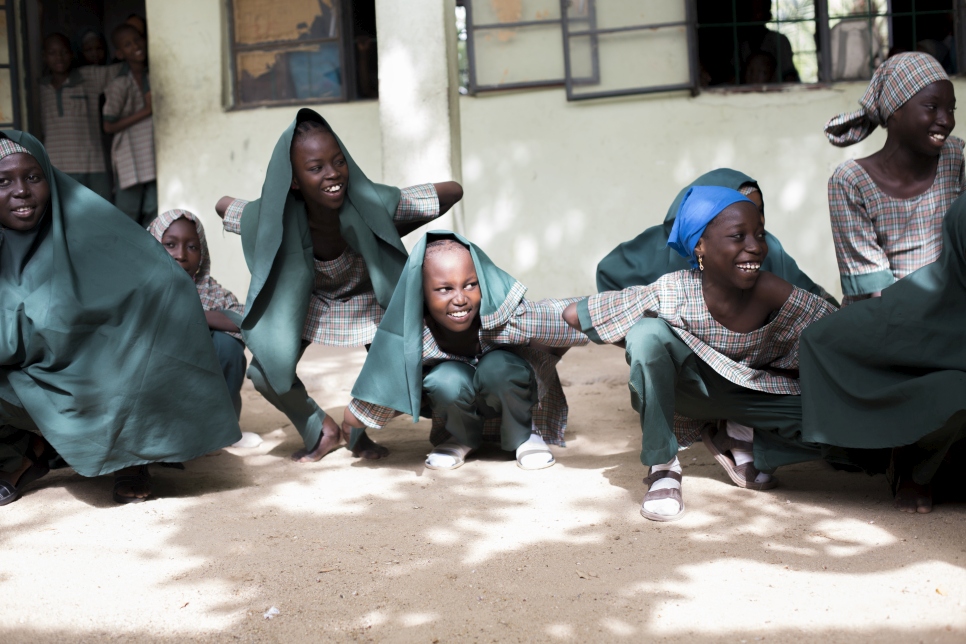 Students of Future Prowess Islamic Foundation School (I) during P.E., Maiduguri, Borno State, Nigeria. © UNHCR/Rahima Gambo
Students of Future Prowess Islamic Foundation School (I) during P.E., Maiduguri, Borno State, Nigeria. © UNHCR/Rahima Gambo

